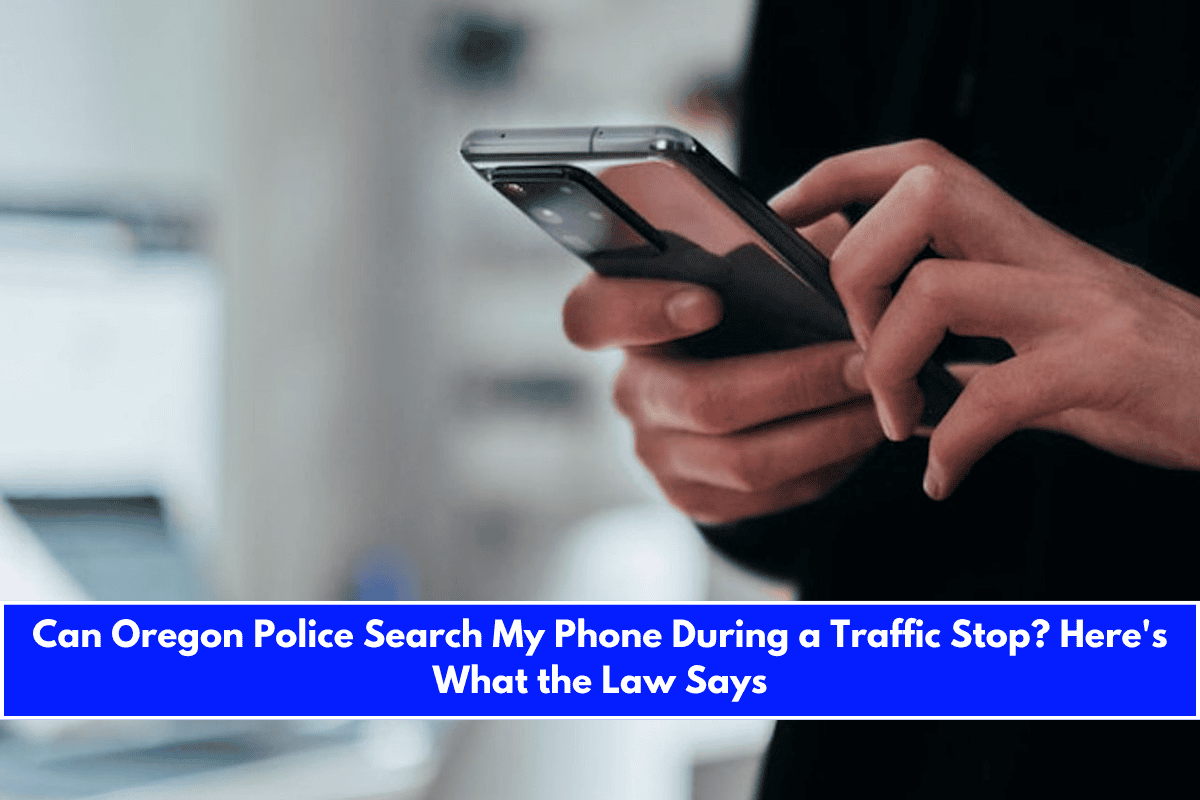Oregon law provides strong privacy protections for your digital devices, especially when it comes to police searches during traffic stops. Here’s a clear breakdown of your rights and what police can—and cannot—do if you’re pulled over in Oregon.
Your Rights: Consent and Warrants
- Police cannot search your phone during a traffic stop without your consent or a warrant. The U.S. Supreme Court’s decision in Riley v. California makes it clear that officers are not allowed to search the contents of a cell phone—even after an arrest—unless they have a search warrant or you give explicit consent.
- You never have to consent to a search of your phone. If an officer asks to see or search your phone, you can politely refuse.
- Oregon’s Constitution offers even stronger protections than federal law, making warrantless phone searches during routine traffic stops even less likely to be legal.
When Can Police Search or Seize Your Phone?
| Situation | Can Police Search Your Phone? |
|---|---|
| Routine traffic stop, no consent | No—police need a warrant or your consent. |
| You give verbal consent | Yes—if you say yes, police can search. |
| Probable cause of a crime | Police may seize (take) your phone but still need a warrant to search its contents, unless there are true emergency circumstances. |
| Exigent circumstances (emergency) | In rare cases, if evidence is about to be destroyed or there is an immediate threat to safety, police may conduct a limited search without a warrant. |
| After arrest | Even if arrested, police still need a warrant to search your phone’s data. |
What Should You Do If Asked?
- Do not consent if you do not want your phone searched. Clearly state, “I do not consent to any search of my phone or belongings”.
- You do not have to unlock your phone or give your password to police, even if your phone is seized.
- Ask if you are free to go if the stop seems to be extending beyond the original traffic violation.
Court Rulings and Oregon Law
- Oregon courts require that all investigative inquiries during a traffic stop be reasonably related to the reason for the stop.
- Any search of your phone’s contents requires a specific warrant, and the scope of that warrant is limited to what the police are looking for in relation to the alleged crime.
- Broad or open-ended warrants to search “all evidence” on a phone are not allowed under Oregon law.
Oregon police cannot search your phone during a traffic stop unless you give consent, they have a warrant, or there are rare emergency circumstances. The law provides robust privacy protections for your digital devices. If you’re pulled over, you have the right to refuse a search of your phone and should clearly state your refusal if asked.
Sources:
- https://law.justia.com/cases/oregon/supreme-court/2019/s066119.html
- https://law.justia.com/cases/oregon/supreme-court/2022/s068639.html
- https://www.gunnlawfirm.com/understanding-your-rights-during-a-traffic-stop/
- https://ij.org/cje-post/state-con-law-case-of-the-week-oregon-stops/











Leave a Reply